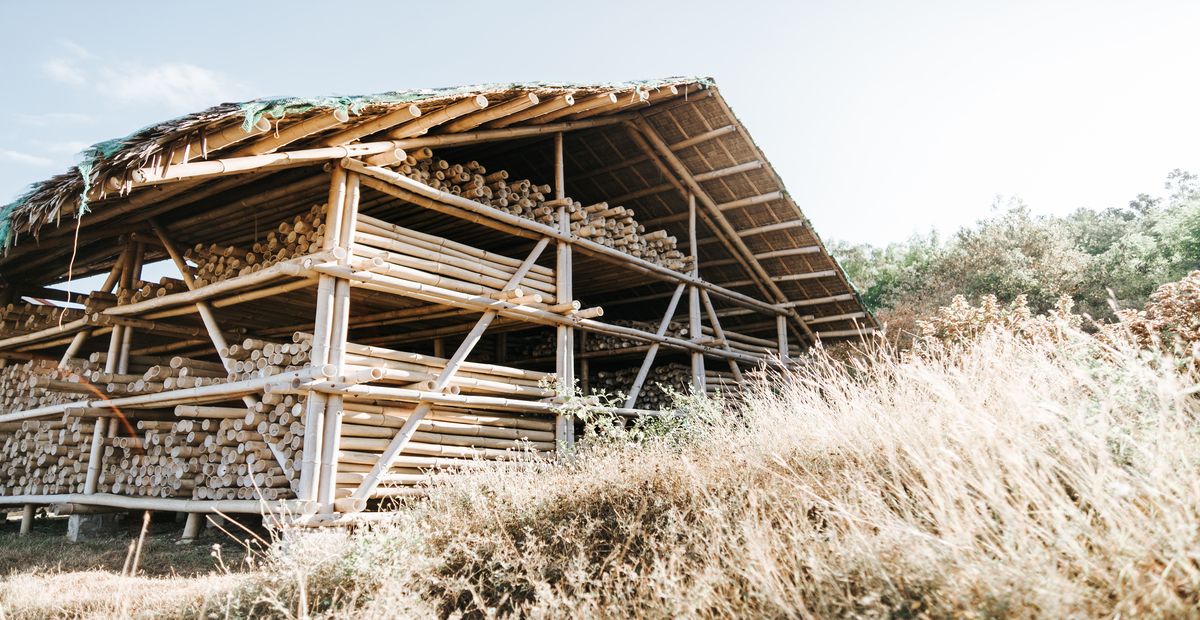
What Makes Bamboo a Good Alternative Construction Material?
Bamboo has been rising in popularity as a sustainable construction material due to its versatility. Compared to other materials such as concrete, steel and timber, bamboo is an organic material that can be easily cultivated and harvested in a short time and can be immediately utilized.
The tensile strength of a bamboo fiber is even two to three times stronger than that of steel. This is one of the many reasons why the design and construction sector around the world find bamboo as a great construction alternative. It is not only affordable but also sustainable. Learn more on why bamboo is a great building material:
Strength and Durability
Bamboo has a high tensile and compressive strength and can withstand heavy loads and extreme weather conditions. It has a higher strength to weight ratio than other conventional materials. An average Bambusa Blumeana can resist 10-15 tons of compression. If properly used and treated, it is also resistant to pests, rot, and decay, making it a durable and long-lasting material.
Cost-effectiveness
Bamboo is considered a cost-effective material due to its fast growth rate, low maintenance requirements, and versatility in product applications. The production costs of bamboo products can be lower than for products made from other materials because bamboo requires minimal inputs and can be processed using simple techniques. Because bamboo is lightweight and grows in many regions around the world, transportation costs for bamboo products can be lower. Bamboo’s versatility in product applications can also increase its economic value, making it a cost-effective and sustainable alternative to traditional building materials and other products.
Eco-friendly material
Bamboo is a renewable resource that grows quickly and can be harvested without causing damage to the environment. Bamboo has a unique ability to absorb and store carbon dioxide from the atmosphere, making it an effective tool in mitigating climate change. Based on studies, bamboo can sequester up to 35% more carbon than other types of trees and plants. It is a sustainable alternative to traditional building materials like concrete and wood that has a lower carbon footprint and is more energy-efficient than these materials.
It requires no maintenance
Bamboo requires little to no maintenance because it has a rapid growth rate, is drought-tolerant, has natural defenses against pests and diseases when growing, and is able to self-regenerate after harvest. These characteristics make bamboo a low-maintenance crop that can provide a sustainable source of materials and income for communities.
High demand is no problem
One of the benefits of bamboo is that it can be easily restocked. Bamboo is also the fastest-growing plant on earth. Bamboo species like Dentrocalamus Asper, Guadua, and Bambusa Blumeana grow 20 cm, 15 cm, and 17 cm per day respectively.
Compared to hardwood trees which can take 30 to 50 years to reach a harvestable age, most bamboo only take about three or four years to reach full maturity. This means that there is an abundant supply of bamboo to sustain the needs of the construction industry.
Aesthetics
Bamboo has a unique and attractive appearance that can enhance the visual appeal of a building. It can be used in various ways, such as structural elements, flooring, wall cladding, and roofing. When used in construction, bamboo can create a warm and natural look that complements many architectural styles.
The Future of Bamboo as a Building Material
Due to its affordability and sustainable components, bamboo is definitely a great alternative for contemporary construction. Due to its environmental features, coupled with the integration of advanced technologies and prefabrication techniques, bamboo is poised for a promising future.
Base Bahay Foundation, Inc (BASE) is the pioneer of Cement-Bamboo Framework in the Philippines. BASE builds affordable and disaster-resilient structures using bamboo-based technology. Through continuous research in the Base Innovation Center (BIC), BASE is optimizing the technology and looking for new applications outside its standard model. BASE also offers training courses under its Bamboo Academy program to share the alternative building technologies and provide further knowledge on bamboo construction. Learn more about BASE projects and initiatives!
Alternative Building Technologies, Cement Bamboo Frame Technology, Sustainable Housing